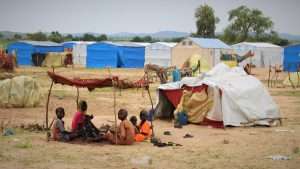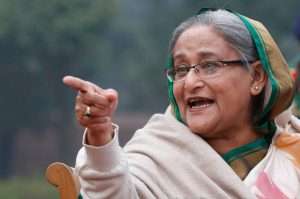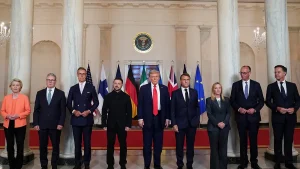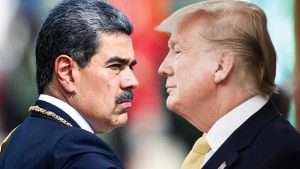Libya: UN envoy says no vetos on candidates, favours Haftar
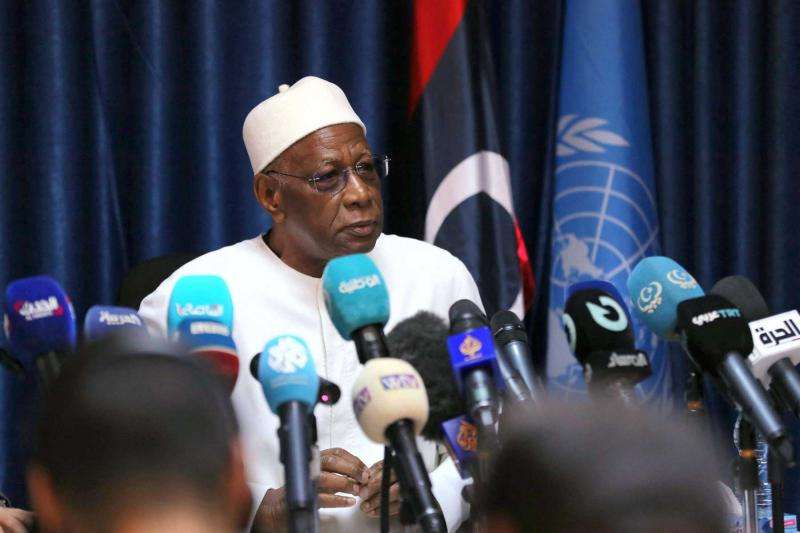
United Nations Envoy to Libya, Abdoulaye Bathily, seems to be showing a preference to the eastern bloc’s warlord Field Marshal Khalifa Haftar as a presidential candidate, and has even suggested that Saif al-Islam Gadhafi should also run – a hugely contentious position aimed at loosening up the stalemate in Libya. according to Reuters.
Bathily is trying to overcome objections to contentious candidates among the many hurdles that block the way to holding elections in the North African country this year. But he has yet to find support among some key actors, especially the House of Representatives (parliament) and the theoretically-consultative State Council.
The two bodies are still slow to move towards agreeing on the constitutional rules that would underlie the legislative and presidential elections, despite their approval of the thirteenth amendment to the Constitutional Declaration.
Neither of their positions is in sync with those of Bathily on the conditions for presidential bids.
The UN envoy said recently that, “it is unacceptable to exclude candidates from presidential elections for political reasons.”
This position was considered his first explicit stand on the divisive issue that has long prevented the finalisation of an agreement on the constitutional basis and election laws before the ballot could be held.
Bathily’s statements were seen as working in favour of the candidacy of Libyan Army Commander, Field Marshal Khalifa Haftar and accommodating the latter’s supporters in the House of Representatives.
But his position faces strong objections from the head of the State Council, Khaled Al-Mishri and many of his fellow members, along with west-based militias and the outgoing Government of National Unity’s Prime Minister Abdulhamid Dbeibah.
Bathily explained in a recent interview with “France 24” and “Radio France Internationale” that any exclusion of candidates from the presidential race for political reasons “would seriously undermine the country’s territorial integrity and would be seriously prejudicial to Libyan society.
“Such a situation will not only lead us to a state of stalemate, but also to an exacerbation of the crisis,” he said.
Without naming names, the UN envoy expressed his belief that the surest way to hold elections is to allow such figures as Haftar, who has dual-US Libyan citizenship and other controversial candidates such as Dbeibah or even Saif al-Islam Gadhafi to run for president, otherwise there will be no elections and the situation could get worse leading to a new military showdown.
On the way to the aborted elections of December 24, 2021, Haftar, Dbeibah and Saif Al-Islam were cleared to run for the presidency. But the House of Representatives objected to the last two’s candidacies, while opposition by armed militias in the western region, particularly in Misrata, to Haftar’s running sealed the fate of the ballot.
The exacerbation of the Libyan crisis, according to Bathily, would have “serious consequences for all neighbouring countries.” He said that the Sahel states, with their festering security vacuum, will suffer the most from any new Libyan flare up of tensions, especially since “Libya is an open air arms market.”
The deterioration of the situation in Libya could mean the collapse of the current de facto truce and the country’s political system facing a legitimacy void, analysts say.
They add that that if the State Council and other like-minded forces maintain their own conditions for Libyan presidential bids, they will prevent any agreement with the House of Representatives on election laws.
On Wednesday, the State Council named its members to the 6 + 6 committee, which is supposed to bridge positions on contentious issues, including that of the conditions for presidential bids. Observers believe that naming the committee members is an important step, but it remains insufficient in view of lingering disagreements about its prerogatives. This may prompt Bathily to embark on the formation of a higher steering committee as an alternative to the House of Representatives and the State Council.
Bathily had hinted that he would resort to what he called an “alternative measure.”
If Libya’s legislative bodies were unable to agree on electoral laws in a timely manner, “We will look at what alternative we will find”, the UN Libya envoy told Reuters on March 24, indicating he would not accept moves to derail a march to elections.
Want to chase the pulse of North Africa?
Subscribe to receive our FREE weekly PDF magazine





